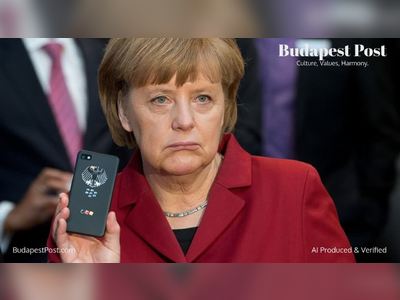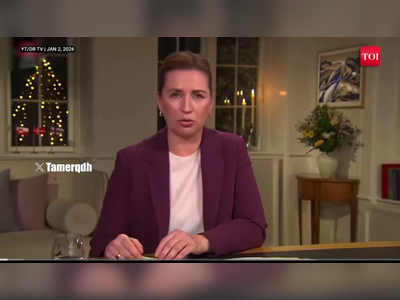Toxic Strychnine Envelopes Sent to Belgian Prime Minister Unveiled
Poisoned letters, discovered last November, targeted high-profile Belgian officials.
A startling revelation has come to light regarding envelopes found in November of last year at the offices of the Belgian Prime Minister, Alexander De Croo.
Tests have confirmed that the white powder contained in these envelopes was strychnine, a deadly toxin notorious in classic crime fiction for its gruesome effects.
In a disturbing incident that tested the vigilance of Belgium's security apparatus, envelopes laced with this potent poison were addressed not only to Prime Minister De Croo, but also to the Minister of the Interior and the head of the national intelligence services.
The anonymous letters were intercepted before reaching the intended recipients, yet one staff member unfortunately opened an envelope.
Following exposure, the individual was hospitalized.
Fortunately, after receiving medical care, the staff member has since made a full recovery.
Strychnine, a crystalline powder often described as both rare and highly lethal, is known to cause severe and distressing symptoms in those exposed, typically leading to painful convulsions and asphyxiation if ingested.
Its selection by criminals underscores a chilling intent, drawing parallels to its infamous use in fictional narratives.
This revelation has heightened security around Belgian leadership.
Earlier this week, a separate security incident occurred when a knife-wielding man was apprehended outside the workplace of Prime Minister De Croo.
The arrest drew attention back to the ongoing safety concerns surrounding key government officials within Belgium.
Authorities continue to investigate the motives behind these incidents.
These events have raised alarm not only domestically but also within international diplomatic circles, as they underscore the persistent threats faced by public figures in an era where dissent can quickly escalate into violence.
The Belgian government has refrained from making speculative statements, focusing instead on security and prevention measures for its officials.
Tests have confirmed that the white powder contained in these envelopes was strychnine, a deadly toxin notorious in classic crime fiction for its gruesome effects.
In a disturbing incident that tested the vigilance of Belgium's security apparatus, envelopes laced with this potent poison were addressed not only to Prime Minister De Croo, but also to the Minister of the Interior and the head of the national intelligence services.
The anonymous letters were intercepted before reaching the intended recipients, yet one staff member unfortunately opened an envelope.
Following exposure, the individual was hospitalized.
Fortunately, after receiving medical care, the staff member has since made a full recovery.
Strychnine, a crystalline powder often described as both rare and highly lethal, is known to cause severe and distressing symptoms in those exposed, typically leading to painful convulsions and asphyxiation if ingested.
Its selection by criminals underscores a chilling intent, drawing parallels to its infamous use in fictional narratives.
This revelation has heightened security around Belgian leadership.
Earlier this week, a separate security incident occurred when a knife-wielding man was apprehended outside the workplace of Prime Minister De Croo.
The arrest drew attention back to the ongoing safety concerns surrounding key government officials within Belgium.
Authorities continue to investigate the motives behind these incidents.
These events have raised alarm not only domestically but also within international diplomatic circles, as they underscore the persistent threats faced by public figures in an era where dissent can quickly escalate into violence.
The Belgian government has refrained from making speculative statements, focusing instead on security and prevention measures for its officials.
AI Disclaimer: An advanced artificial intelligence (AI) system generated the content of this page on its own. This innovative technology conducts extensive research from a variety of reliable sources, performs rigorous fact-checking and verification, cleans up and balances biased or manipulated content, and presents a minimal factual summary that is just enough yet essential for you to function as an informed and educated citizen. Please keep in mind, however, that this system is an evolving technology, and as a result, the article may contain accidental inaccuracies or errors. We urge you to help us improve our site by reporting any inaccuracies you find using the "Contact Us" link at the bottom of this page. Your helpful feedback helps us improve our system and deliver more precise content. When you find an article of interest here, please look for the full and extensive coverage of this topic in traditional news sources, as they are written by professional journalists that we try to support, not replace. We appreciate your understanding and assistance.











